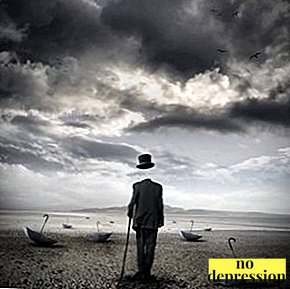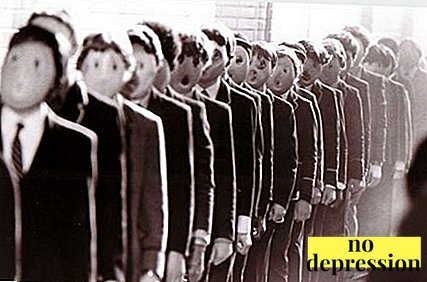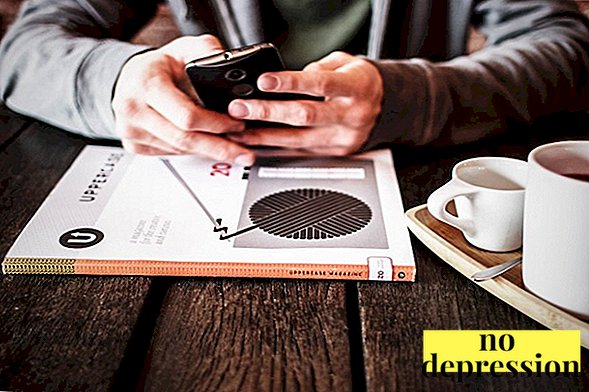Signs of depression? What is it and how do they differ from the symptoms? Our site explains.
 Symptoms: These are objective manifestations of depression, on the basis of which professionals with a high degree of probability can determine the presence or absence of depression. Symptoms are the basis of diagnosis used by doctors, while signs are a more common concept used, as a rule, for self-diagnosis. Sometimes a symptom can be formulated based on signs. The distinction between these concepts at the household level is rather arbitrary.
Symptoms: These are objective manifestations of depression, on the basis of which professionals with a high degree of probability can determine the presence or absence of depression. Symptoms are the basis of diagnosis used by doctors, while signs are a more common concept used, as a rule, for self-diagnosis. Sometimes a symptom can be formulated based on signs. The distinction between these concepts at the household level is rather arbitrary.
The most common sign of depression
A hopeless or helpless outlook on life is the most typical sign of depression. Other feelings may manifest as worthlessness, self-hatred, gratuitous guilt, and impending doom. Repetitive and obsessive thoughts during a depression can be voiced like this: “It's all my fault” or “What is the meaning of such a life?”.
There are gradients of depression - mild, moderate and severe. Often the first mood changes are minor and not always obvious, and a person may not notice when and how he was at the mercy of depression. Most people successfully recover from situational experiences and stress after a few days and sometimes weeks.
How many observe signs of depression?
If it seems to you that the signs of depression do not disappear for a long time (weeks, months and years) and depression begins to interfere with functioning and live normally - this can be an indicator of a serious illness called “clinical depression” or “deep depression”. Some people describe such depression as a “black hole” from which they are not able to get out on their own. Unfortunately, this is often the case.
Depressive syndrome can be observed even in children aged 7-12 years with internal diseases, with influenza, hepatitis, tuberculosis, collagenosis, etc., and manifests itself in fatigue, slowed down activity, fear, loss of appetite, unwillingness to participate in games.
In fact, depression is a serious illness that destroys people emotionally, mentally and physically, and requires treatment. Therefore, it is important to know the symptoms and signs of depression in order to get help from a specialist in a timely manner. Determining whether your negative enduring experiences are the result of depression will be the first step to healing and recovery.
Common signs of depression
Emotional states:
- Depressed mood
- Sadness longing
- Disappointment
- Dissatisfaction
- Loss of pleasure in life
- Helplessness
- Hopelessness
- Guilt
- Anxiety
- Intolerance towards others
- Irritability, anger
- Cynicism, cruelty
- Suicidal thoughts
- Apathy
- Frustration
Mental disorders:
- Low self-esteem
- Feelings of worthlessness and uselessness
- Lack of motivation
- Difficulty making decisions
- Harsh criticism of your own for the slightest perceived offenses and mistakes
- Repetitive reflections strung on one idea.
- Self-flagellation
- Tearfulness
- Self isolation
- Reckless behavior
 Social behavior:
Social behavior:
- Loss of pleasure and joy from daily activities
- Neglect of own hobbies and interests
- Indifference, lack of participation in the fate of friends and acquaintances
- Stupid reactions to positive and negative public incentives
- Avoiding meetings, contacts and refusal to participate in social events
- Difficulties in communicating with loved ones
- Stay in family dramas and conflicts
- The desire for solitude, isolation
- Alcohol, Drugs and Sedatives Abuse
- Creating complex social situations that entail the worst interactions and negative emotional stimuli
- Depressive people also seem to cause a negative affect on others, which, in turn, causes failure and loss of socially mutually beneficial opportunities.
Body Reactions:
- Physical (metabolic) depletion
- Fast fatiguability
- Lethargy, chronic fatigue, declining vitality, loss of energy
- Inner cold and numbness, heaviness in the limbs
- Squeezing in the center of the chest with pain that results in crying and impetuous sobbing
- Feeling short of breath or choking
- Slowed down reactions of speech and movements
- Difficulty concentrating and remembering details
- Anxiety (psychomotor agitation)
- Change in appetite (increase or loss)
- Weight change (increase or loss of more than 5% of body weight per month)
- Decreased interest in sex (loss of libido)
- Sleep disturbances (eg, nighttime insomnia and difficult morning awakening, or the need for a longer daily rest)
- Menstrual change
- Headache, muscle, stomach pain and constipation
Soul feelings:
- Distrust God (Absolute, Universe, World)
- Misunderstanding of their purpose and "place" in the world
- Loss of the meaning of life, lack of life goals and objectives
- Dual worldview, the tendency to dynamic polar processes
- Comparing life with punishment, imprisonment of the soul
- The self, creating an intentional distance from the community
- Need or desire to "go home"
- Failure to take responsibility for your life
- Care of the victim
- Loss of time
- Fears, doubts and restrictions on their own development
- Meaningful figurative dreams
- Fundamental experience of the mystical dark night of the soul
Conclusion
The manifestation of one or more of the above symptoms is a normal part of life. But the more signs found, the more they are manifested and the longer they last, the higher the likelihood that you are depressed. Knowing the cause of your condition and recognizing various symptoms, you will be able to overcome problems, improve the quality of life and return a joyful world view. No matter how hopeless you feel, you are able to heal. Feelings of sadness and helplessness are just symptoms of depression, not your reality!

 Social behavior:
Social behavior:

